THIS ARTICLE DESCRIBES VERY VIOLENT EVENTS
Massacre in Sabra and Shatila
On 16 September 1982, a massacre took place in the Sabra and Shatila refugee camps in Lebanon. These camps near Beirut were mainly home to Palestinians. In two days, several thousand unarmed civilians were brutally slaughtered by Christian militias with the help of the Israeli army. Israel's then Minister of Defence, Ariel Sharon, had previously surrounded the camps in West Beirut. When no one could get in or out, Sharon sent the Phalangists in on the evening of 16 September, with the Israeli army ensuring that no one could escape and illuminating the killers with flares.
Journalist Robert Fisk was one of the first foreign observers to visit the camps. The massacre had lasted until 8 a.m. on 18 September, and at 10 a.m. Fisk went to take a look. He had many years of experience in the Middle East and had seen the most terrible things, but what he saw here was worse than anything he had ever seen before. Hundreds of unarmed people had been shot dead..
... there were women lying in houses with their skirts pulled up and their legs spread apart, children whose throats had been cut, rows of young men who had been shot in the back after being lined up against a wall. There were babies – black babies because they had been slaughtered 24 hours earlier and their bodies were already showing signs of decomposition – thrown in a heap next to discarded American army rations, Israeli military equipment and empty whisky bottles.
EYEWITNESS ACCOUNTS
SHOCKING TEXT
From her home on the edge of the Palestinian refugee camp Shatila, Lebanese Hind D. sees an ominous glow. It is Thursday, 16 September 1982, half past six in the evening. Darkness descends on the Lebanese capital Beirut. But in the western part of the city, where Hind lives with her eight children, the light remains.
Hind freezes in fear as she watches Israeli flares descend on small parachutes, spreading a bright yellow glow. Israeli aircraft have been bombing the camp all day, and the flares must be a harbinger of an invasion. Hind grabs a broom and goes outside with her children. Surely the Israelis won't see a house with a woman standing in front of it with a broom and children as a threat?
Korte tijd later ziet ze een stuk of 50 mannen met wapens in groene gevechtsuniformen op zich af komen. Ze hoort dat het geen Israëliërs zijn. ze spreken Libanees met elkaar en hebben christelijke namen als ‘Georges” en ‘Elias’.
In het kielzog van de soldaten volgen grote bulldozers, die de huizen in de smalle straatjes met de grond gelijkmaken. Hind heeft al zeven jaar burgeroorlog overleefd, maar de aanblik van de mannen en de bulldozers boezemt haar meer angst in dan ze ooit gehad heeft.
‘Come here!’ a soldier suddenly shouts. He tries to grab one of the children.
Hind calls out to the children to take shelter behind the house. She runs after them, but feels a sharp pain in her leg. A bullet has hit her and blood is flowing down her leg. Nevertheless, Hind and her children manage to get behind the house.
The soldiers are still outside and she tries not to make a sound. When her daughter coughs, she covers her mouth with her hand. In the distance, she hears gunfire and people screaming in fear and pain.
‘DON’T GET UP, MUM. THEY’RE LYING.’
Shatila Camp, Thursday, 7 p.m.
Due to Israeli bombing, many camp residents are in shelters.
Twelve-year-old Palestinian Munhir Mohammad has sought refuge in Abu Yasser's shelter in the Shatila camp, with his mother, three sisters and two brothers. Suddenly, the door flies open. Armed men enter the crowded room. They shout that everyone must come outside. Women and children are taken away and the men are lined up against a wall. Munhir hears shots and the men fall down.
The militia soldiers send the terrified women and children to the nearby Akka hospital. It is 7 p.m. Then Munhir sees his 15-year-old brother Mufid fleeing in panic through the crowd. There is shouting and shooting, and Mufid is hit in the thigh. Munhir sees him disappear into a maze of narrow streets. The men give up the chase and drive the other prisoners further through the streets.
At a petrol station, Munhir and the others are forced to stop and most of the soldiers disappear. An hour later, they return. Out of nowhere, they start shooting at the prisoners. The women and children fall over each other. When all the prisoners are lying in a large pile on the ground, a soldier shouts: 'If you are injured, we will take you to hospital. Get up and you will be fine.'
Munhir, his mother and his brothers and sisters are all injured. His mother wants to get up, but Munhir stops her.
‘DON’T GET UP, MUM, THEY’RE LYING,’ he whispers.
Others who manage to stay on their feet suffer the consequences. They are mercilessly mowed down. Soldiers inspect the pile of bodies with torches. Anyone who makes a sound is killed. Munhir remains silent. He hopes the soldiers will think he is dead. Even when they shoot someone nearby, he does not move a muscle. Then the soldiers leave. Next to Munhir, his family members lie in a pool of blood. They no longer need to pretend to be dead.
EYEWITNESS TO MASS MURDER
Shatila Camp, Thursday evening
The militia members have split up and are attacking the camp from different sides.
Hind has gathered enough courage to climb onto the roof terrace of her house and watch the soldiers. She sees groups of people being shot without mercy. Men, women and children.
Hind hears the unmistakable sound of AK-47 rifles, with which the attackers shoot their victims at close range. In the glow of the flares, she sees the blood spurting as the soldiers hack at the people. Their death cries mingle with the screams of the girls who are first raped and then killed.
When the killings are over, the bulldozers arrive to clear away the bodies. Some bodies get caught in the teeth of the bulldozers' buckets and dangle in the air... The dead are dumped on the bare ground and covered with sand, earth and the rubble of the destroyed houses. Then the bulldozers drive back and forth over the piles with their large caterpillar tracks to crush them. This goes on continuously throughout the night.
MUNHIR ESCAPES THE DANCE AGAIN
Shatila camp, early Friday morning.
Last night, soldiers penetrated deep into the camp. Many are drunk.
Twelve-year-old Munhir shivers from the cold. All night long, he has lain motionless among the corpses, including those of his mother, three sisters and a brother. For hours, he had to listen to the soldiers murdering and raping. When a soldier arrives with a blanket to cover the bodies, Munhir cannot suppress his shivering. The soldier immediately shoots him in the head. But luck is on the Palestinian boy's side. He has hidden his face in his hands and the bullet hits his index finger. The killer thinks he is dead and covers him with a blanket.
But Munhir is still alive. He remains lying down until the streets become quiet again. He carefully gets up and enters an abandoned house. Here he takes off his bloodstained clothes. At that moment, a group of soldiers storms into the house: 'Who are you? Speak up! Are you Lebanese or Palestinian?
‘I'm from Lebanon,’ Munhir lies, trembling. ‘If you were Palestinian, we would have killed you,’ says a soldier.
They leave the house.
Munhir can hardly believe his luck. He finds a clean shirt and puts it on. He looks out of the window. Everything seems quiet. He takes a chance and goes outside. He strides through the deserted camp. Suddenly, he hears someone behind him shouting, 'Stop right there!'
Munhir does not look back and keeps running as fast as he can. A shot rings out and a bullet grazes his cheek. Munhir ignores it and keeps running.
MILITIA IS OUT FOR 'TERRORISTS'
Akka Hospital, Friday, 11:00 a.m.
On Thursday night, many camp residents fled to the nearby Akka hospital.
When the militia arrives, they have to leave again.
Nurse Ann Sunde stares at the screaming men who have stormed into the hospital. They are all wearing the same green uniforms and are armed. The 33-year-old Norwegian works there as a volunteer. She asks the men who they are in broken Arabic. “Falangists,” is the answer.
Sunde knows very well who the Phalangists are. They call their militia the Lebanese Forces and their leader was the newly elected president Bashir Gemayel, who was killed in a bomb attack a few days earlier.
‘What are you doing here?’ Ann Sunde asks. The soldiers reply that they are looking for ‘terrorists and armed men’.
Meanwhile, other militia members search the hospital. It has five floors and 60 beds. But after rumours of a massacre in the Shatila camp, the staff have transferred the patients to other hospitals.
THERE ARE ONLY A FEW LEFT HERE
Historia
2013 nr 2

.jpg)
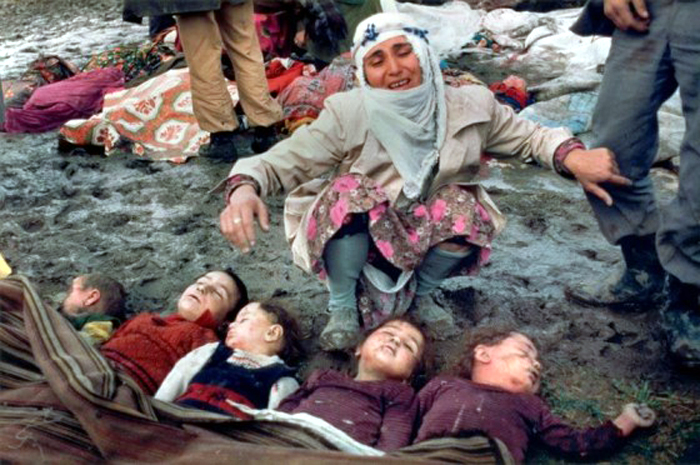
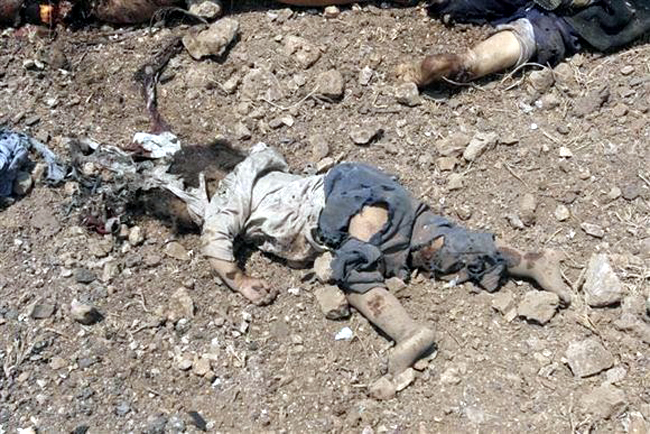
.jpg)
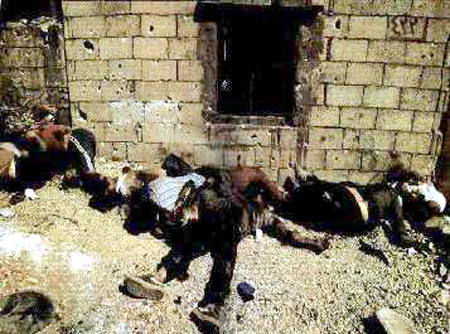
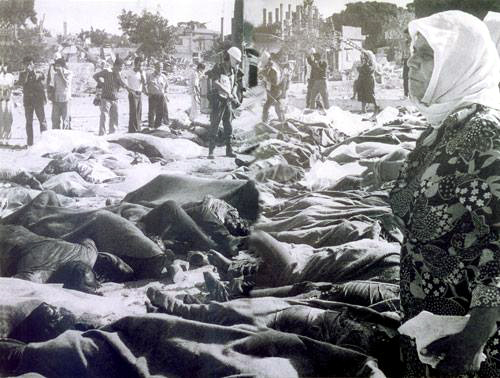
.jpg)
.jpg)
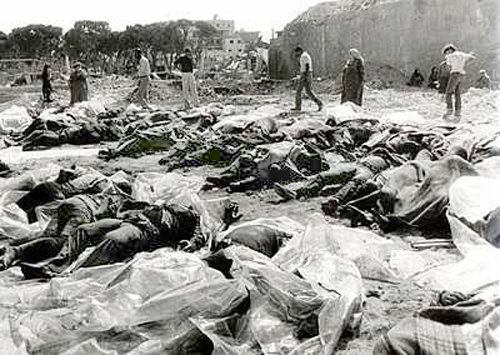
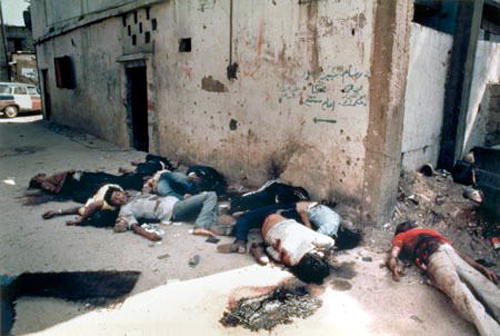
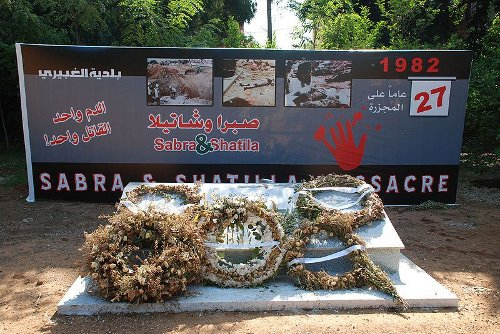
.jpg)